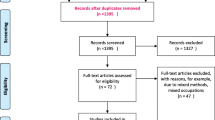Abstract
The recent corporate scandals in the United States have caused a renewed interest and focus on teaching business ethics. Business schools and their faculties are reexamining the teaching of business ethics and are reassessing their responsibilities to produce honest and truthful managers who live lives of integrity and ethical accountability. The authors recognize that no agreement exists among business schools and their faculties regarding what should be the content and pedagogy of a course in business ethics. However, the authors hold that regardless of one’s biases regarding the content and pedagogy, the effective teaching of business ethics requires that the instructor in designing and delivering a business ethics course needs to focus particular attention on four principal questions: (1) what are the objectives or targeted learning outcomes of the course? (2) what kind of learning environment should be created? (3) what learning processes need to be employed to achieve the goals? and (4) what are the roles of the participants in the learning experience? The answers to these questions provide the foundations for any business ethics course. The answers are major determinants of the impact of a business ethics course on the thinking of students and the views on the ethical and professional accountabilities and responsibilities of managers in the workplace.
Similar content being viewed by others

References
AACSB International: 2003, Business Accreditation Standards, Adopted April 25, 2003 (based on revised draft no. 3, March 10, 2003), replacing April 23, 1991, standards. Available at http://www.aacsb.edu/accreditation/standards.asp. Accessed May 6, 2004 (revised January 1, 2004)
J. A. Autry (1994) Life & Work William Morrow and Company, Inc New York
J. S. Black M. Mendenhall (1989) ArticleTitle‘A Practical but Theory-based Framework for Selecting Cross-cultural Training Programs’ Human Resource Management 28 IssueID4 511–539
D. D. Bowen J. Seltzer J. A. Wilson (1987) ArticleTitle‘Dealing with Emotions in the Classroom’ Organizational Behavior Teaching Journal 12 IssueID2 1–14
J. Brinkmann R. R. Sims (2001) ArticleTitle‘Stakeholder-sensitive Business Ethics Teaching’ Teaching Business Ethics 5 171–193 Occurrence Handle10.1023/A:1011461418842
C. Christensen D. Garvin A. Sweet (Eds) (1991) Education for Judgment: The Artistry of Discussion Leadership Harvard Business School Press Boston
Duska, R. and N. Rongione: n.d. Teaching Business Ethics, Retreived December 2, 2003: http://www/abe.villanova.edu/proc2000/n143.pdf (c20033680)
E. L. Felton SuffixJr. R. R. Sims (2005) ArticleTitle‘Teaching Business Ethics: Targeted Outputs’ Journal of Business Ethics 60 377–391 Occurrence Handle10.1007/s10551-004-8206-3
J. V. Gallos (1989) ArticleTitle‘Developmental Diversity and the OB Classroom: Implications for Teaching and Learning’ Organizational Behavior Teaching Journal 13 IssueID4 33–47
M. Hemmasi L. A. Graf (1992) ArticleTitle‘Managerial Skills Acquisition: A Case for Using Business Policy Simulations’ Simulation & Gaming 23 IssueID3 298–310
D. A. Kolb I. M. Rubin J. Osland (1991) Organizational Behavior: An Experiential Approach Prentice-Hall Englewood Cliffs, NJ
M. Lampe (1997) ArticleTitle‘Increasing Effectiveness in Teaching Ethics to Undergraduate Business Students’ Teaching Business Ethics 1 3–19 Occurrence Handle10.1023/A:1009732419522
C. Lindsay (1992) ArticleTitle‘Learning Through Emotion: An Approach for Integrating Student and Teacher Emotions into the Classroom’ Journal of Management Education 16 IssueID1 25–38
Meinhardt, J: 2003, February 24. Survey shows MBA programs, The Business Journal. Retreived December 2, 2003:http://tampabay.bizjournals.com/tampabay/stories/2003/02/24(focus3.html (c20030680)
D. R. Nelson D. P. Wittmer (2001) ArticleTitle‘Developing a Learning Community Approach to Business Ethics Education’ Teaching Business Ethics 5 267–281 Occurrence Handle10.1023/A:1011404511045
A. J. Nurick (1990) ArticleTitle‘Beyond the Teaching Facts: Teaching What We Do Not Know’ Organizational Behavior Teaching Journal 14 IssueID4 54–62
Phillips, M: 2003, February 24. College Courses Offer Basics for Dealing Ethically in Business, The Business Review. Retreived December 2, 2003: http://www.bizjournals.com/albany/stories/2003/02/04/focus2.html(c20033683)
R. N. Sanyal (2000) ArticleTitle‘Teaching Business Ethics in International Business’ Teaching Business Ethics 4 137–149 Occurrence Handle10.1023/A:1009826909760
Shepard, J., Goldsby, M., and V. Gerde: n.d. Teaching Business Ethics through Literature: The Online Journal of Ethics, Retreived December 2, 2003: http://www.stthom.edu/cbes/oje/articles/teaching.html)c19971272)
R. R. Sims (2002) Teaching Business Ethics for Effective Learning Quorum Books New York
R. R. Sims (2001) ArticleTitle‘Business Ethics Teaching for effective Learning’ Teaching Business Ethics 6 393–410
R. R. Sims S. J. Sims (1991) ArticleTitle‘Increasing Applied Business Ethics Courses in Business School Curricula’ Journal of Business Ethics 10 211–219
InstitutionalAuthorNameThe Hastings Center (1980) The Teaching of Ethics in Higher Education The Institute of Society, Ethics and Life Sciences Hastings-on-Hudson, NY
E. Zlotkowski (1996) ArticleTitle‘Opportunity for All: Linking Service-learning and Business Education’ Journal of Business Ethics 15 IssueID1 5–19 Occurrence Handle10.1007/BF00380258
Author information
Authors and Affiliations
Corresponding author
Additional information
Ronald R. Sims is the Floyd Dewey Gottwalld Senior Professor in the Graduate School of Business at the College of William and Mary where he teaches Organization Behavior, Leadership, Change Management and Human Resource Management (HRM), and Business Ethics. He received his Ph.D. in Organizational Behavior from Case Western Reserve University in 1981. His research focuses on a variety of topics to include teaching business ethics. Two of his most recent books are: Teaching Business Ethics and Ethics and Corporate Social Responsibility: Why Giants Fall.
Edward L. Felton, Jr. is Professor of Business Administration at the College of William and Mary where he teaches ethics and strategy. He previously taught on the faculties of Harvard University, U. of Virginia, Wake Forest University, and Samford University. He has authored or co-authored seven books and more then two hundred management articles and case studies. He holds his doctorate from Harvard University.
Rights and permissions
About this article
Cite this article
Sims, R.R., Felton, E.L. Designing and Delivering Business Ethics Teaching and Learning. J Bus Ethics 63, 297–312 (2006). https://doi.org/10.1007/s10551-005-3562-1
Issue Date:
DOI: https://doi.org/10.1007/s10551-005-3562-1



